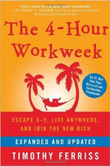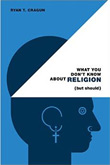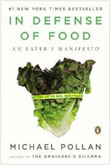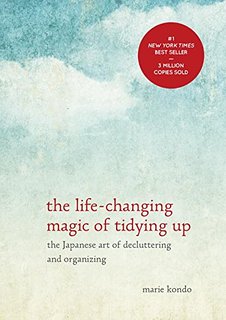Diets Don’t Work . . . But What We Can Do Instead
November 18, 2012 - David McConkey
With all the hype about obesity and being overweight, you would think
that going on a diet to lose weight would be a good thing to do. After
all, isn’t that the best way to feel better, look better, and become
healthier?
Uh, actually, no.
We should throw out the whole
idea of the obesity epidemic and the goal of losing weight. Turns out
we can almost always improve our health by ignoring our weight
altogether.
Part One: The Issue (Or, go directly to Part Two: Seven Things To Do)
Amidst the hoopla of the war on obesity and the
ridiculing of anyone even slightly overweight, we best remember a few
things. How normal healthy people come in different sizes. How much of
our public health discussion is led by a food industry that is
profit-driven. How health experts disagree and have been wrong before.
And, finally, how shaming people into going on a diet almost always
backfires as a motivational strategy to live more
healthily.
I like starting with the
background to this issue by referring to Michael Pollan's book In
Defense of Food: An Eater's Manifesto.
Pollan traces the
history of the big change in recent decades to eat more processed and
artificial food. He recounts the recommendation from experts beginning
in the 1970s to eat less saturated animal fat. The perceived concern
then with fat was health problems, especially heart disease.
Telling
the public to eat less meat and instead to eat more vegetables and
fruits would have been sensible advice. But, because of industry
lobbying, the message became “Eat more low-fat foods.”
The
public certainly followed the “eat more” part. People thought they were
doing the right thing by eating more “low-fat” processed food. But
some of the new foods turned out to be not so good – like those with
trans fats.
To top it off, scientists have since found that there is little or no
link between eating saturated fat and heart disease. Oops!
Pollan
is withering in his criticism: “Thirty years of nutritional advice have
left us fatter, sicker, and more poorly nourished.”
The
public has become overwhelmed and confused by often-conflicting advice
from nutritional scientists, government, the media, and – of course –
the food industry, with its huge marketing budget.
In the
case of scientists, they do not agree with each other about the
healthfulness of different foods. What’s more, Pollan says, they have
become consumed in arguing with each other.
As for the
media, where’s the demand for describing the virtues of eating
sensibly? There is so much more interest in covering the latest
controversy, fad, or wonder diet.
And then there is the food industry. It promotes processed foods,
because those have
higher profit margins than unprocessed foods. Plus, processed foods can
have fancy labels promoting their supposed health benefits. Real foods
– especially vegetables and fruits – because they do not have fancy
labels and because they have lower profits, are often not promoted by
industry and not noticed by us food shoppers. “The silence of the
yams,” quips Pollan.
The
information consumers are getting is highly biased. For example, foods
that are supposedly better are often the ones that have been studied,
because they have an industry group promoting them and funding the
study. It's easy to forget that the foods not as carefully researched
also have benefits. Also - and counter-intuitively for our consumer
society - the most nutritious foods (like vegetables and fruits) do not have nutritional
labels listing their nutrients!
But what about the obesity epidemic? Almost
certainly, any health problems associated with obesity and being
overweight have been overstated.
And anyway, we have a classic Catch-22 here. About the only
remedy we know of to lose weight is to tell people to go on a diet. But
diets don’t work. So, in recommending that people go on a diet, they
are being set up for frustration and failure.
But
why don’t diets work? The problem with going on a diet –
or even trying
to lose weight in general – is that we are confronted by two almost
insurmountable obstacles: biology and economics.
First,
biology. When we reduce what we eat in order to lose weight, our bodies
rebel. We have evolved over millions of years to maintain weight during
times of food shortage. If our bodies suspect that a famine is
imminent, then we go into weight-conserving mode. This happens at a
deep inner level, below any level of consciousness.
We
don’t understand all the factors involved. But recent
research details
how various metabolic and hormonal changes enable our bodies to
thoroughly subvert our conscious efforts to lose weight. After
weight loss, our whole metabolism changes so that we use fewer calories
than before in maintaining our bodies. Our muscles change so that they
burn fewer calories to perform the same activity. And our brains
physically change: our desire for high-calorie foods is increased and
at the same time our willpower to resist is decreased.
That
is why almost everyone who goes on a diet will eventually gain back all
(and often, more) of the weight that they initially lose. (Promotions
and studies that report successful weight loss are usually
short-term, like a year or so, because they invariably don’t work for
any longer.)
Go on a few “yo-yo” diet / weight gain cycles and our bodies become
extra resistant to losing any weight.
As
a result, many of us become discouraged dieters with our self-esteem
battered. And then we don’t want to even think about exercising or
eating those vegetables like we know we should.
That
brings us to the second obstacle to losing weight: economics. Unhappy
people are just what corporate marketers want. Billions of dollars are
to be made when we crave buying more of everything – including diet
programs – in an endless attempt to feel better.
Making us
desire being thin (especially for women) is a very well planned and
well funded effort. Fashion models have been getting skinnier over the
years. Today’s super svelte bodies of magazine models are increasingly
not even real; they are just computer-generated images.
We
are trying to live up to an ideal that can’t be achieved. As we consume
more and more, we feel worse and worse. When shown a picture of
chocolate cake, Pollan notes, the top response of Americans is “guilt.”
The top response of the French? “Celebration!”
In North America over the past few decades we have undergone one of the
most
radical changes in our eating since the discovery of
agriculture. We have also been subjected to a huge effort to make us
feel
uncomfortable in our own skin. We are confronted by competing and often
confusing health
claims. We are encouraged to feel anxious about ourselves, about what
we eat, and about our
weight - no matter what our weight is. And we are tempted to consume
ever more: including more stuff in general, more food, and more diet programs.
So, what can we do? Because, after all, we do want to be healthy and to
enjoy our lives.
We
can chart our own course. We can ignore the advice of much conventional
wisdom, including advice from the health experts as well as the
messages from
mass advertising. We can discover ways to eat well, and to live well.
Part Two: Seven Things To Do
See also:
Authors Offer Food for Thought
Community Shared Agriculture: A Growing Notion
Michael
Pollan on Amazon.com
(on
Amazon.ca)
Popular Right Now:
- 15 Tips for Healthy Eating
- Quality of Life, Well-Being Research Something We Can Feel Good About
- Diets Don't Work, So What Does?
- Political Contributions: Top Ten Canadian Tax Tips
- Nestle Fitness 14 Day Weight Loss Program; What is Wrong Here?
- Charitable Donations: Top Ten Canadian Tax Tips
Must Read Books:
The 4-Hour Workweek:
Escape 9-5, Live Anywhere, and Join the New Rich

What You Don't Know About Religion (But Should)

In Defense of Food:
An Eater's Manifesto

The Life-Changing Magic of Tidying Up:
The Japanese Art of Decluttering and Organizing

Don't
Even Think About It:
Why Our Brains are Wired to Ignore Climate Change

Like This? Share It!
Press Ctrl + D to Bookmark!
